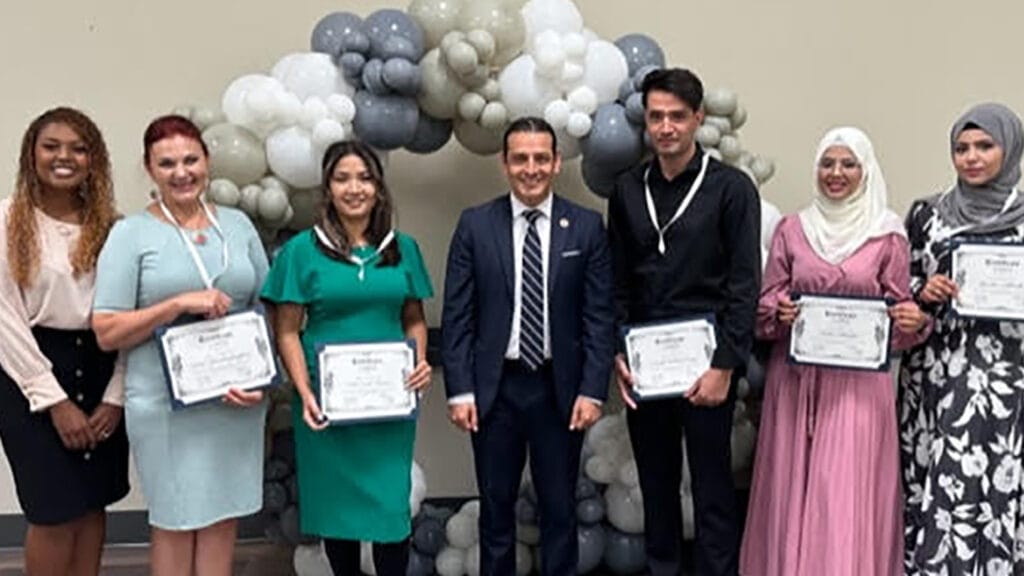
Another creative campaign to bring new workers into the long-term care sector is succeeding beyond expectations, officials in Arizona announced Wednesday.
The AHCA WORKS program, launched by the Arizona Health Care Association in 2022, is well ahead of its two-year goal of recruiting and training 1,500 healthcare workers in the state.
AHCA WORKS has partnered with 211 employers across Arizona to enroll more than 1,400 students so far. The program is on pace to enroll 1,650 by its end, according to Jeff Barrett, the director of workforce development at the Arizona Health Care Association.
“We still have funds available so we are incrementally increasing the amount of enrollees until the funding is out,” he told McKnight’s Long-Term Care News Wednesday.
AHCA WORKS is funded by a grant from the Arizona governor’s office. Arizona’s senior population is projected to grow in the coming years, and this grant is aimed at anticipating an increased demand for more frontline care workers.
Arizona Health Care AssociationCEO Dave Voepel, celebrated the success of AHCA WORKS’ (Workforce Outreach and Retention are Keys to Success) partnership with the state.
“This program demonstrates that funding for workforce development is both necessary and valuable,” he said in a statement. “We are grateful that Arizona Governor Katie Hobbs has made this a priority.”
Barrett attributes much of the success of AHCA WORKS to effectively working with and managing the cost of third-party education programs.
Since the outbreak of COVID-19, more educational programs for healthcare workers have been outsourced to third-parties. Many of these programs are used to receiving their tuition fees up front, and so convincing them to accept gradual, recurring payments from grant funding has been vital. Time, patience and persistence are key, according to Barrett.
He also credits the program’s success to thinking outside the box — “being open to seeing what’s not being done.”
For example, AHCA WORKS has notably been able to work together with other programs in the state to recruit cohorts of refugee workers from Ukraine, Syria and Afghanistan. Some of these students were RNs or pharmacists in their home countries but had their documentation destroyed in the conflicts they fled from. AHCA WORKS is helping these students get the licensing they need to reenter care professions in the US.
Once again, patience and being able to anticipate the needs of both students and third-party partners have been crucial, officials pointed out. AHCA WORKS encourages training locations to hire students in temporary roles such as hospitality staff while they are taking courses so that they can still provide for themselves and their families while in training.
Another vital component of the program’s success is proactively addressing cultural barriers. English classes are being offered alongside nursing classes, with the English lessons tailored to the material of the upcoming nursing lessons. Current workers, teachers and students are also encouraged to bring food and other cultural items to share and encourage understanding among the groups.
As it continues to search for new streams of willing healthcare workers, AHCA WORKS plans to add two more refugee cohorts before the grant ends in 2024.
As to the prospect of AHCA WORKS being replicable across the country, Barrett acknowledged the crucial role of sufficient funding to make it possible. He also reiterated the importance of persistence, creativity and seeing value in places where it might not normally be expected.
This is not the only nurse training program around the country meeting with recent success. Earlier this week, McKnight’s reported on a California program that is ahead of schedule in its goal of graduating 2700 new CNAs by 2026.




